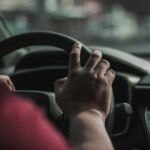Who is Responsible for Property Damage Repairs After a Car Accident?
Following a road incident, determining who pays for damages can be confusing and frustrating. Insurance companies design their processes to be convoluted and misleading in order to minimize claims. Fortunately, personal injury firms are your ally after a car accident, and we’re here to clarify some of your questions.
United Citizen Law proudly serves the Sacramento area and beyond with dependable and relentless service for car accident victims. To start your recovery journey, call (916) 800-8457 or tell us about your case today.
Scenario #1: Another Driver Caused the Accident
If the collision was caused by another driver, they are responsible for paying damages—typically through their insurance provider. When all parties cooperate accordingly, the resolution is simple and straightforward. You are compensated for your vehicle’s necessary repair costs or its Blue Book value if totaled. Unfortunately, the process often isn’t as simple as ‘claim and earn,’ and insurance companies will complicate matters by disputing responsibility.
When an at-fault driver’s insurance provider doesn’t accept responsibility for the loss, it’s typically because the company:
- Believes it can win the case in court
- Hopes the victim will not pursue further action and will drop the case
- Cannot get in contact with its insured driver to verify the accident details
Insurance companies often delay cooperation with claims to erode the victim’s patience and push for less costly outcomes.
What To Do If the At-Fault Driver’s Insurance Company Refuses To Pay
If the other driver’s insurance carrier refuses to pay for your property damage claim, you should ask your own insurance company to cover the damages—provided you have full coverage. This may seem detrimental, but the implications of having your own insurance provider cover the costs are usually not serious. In most cases, justice is only delayed for a short time.
Your own insurance company, assuming you have full coverage, will temporarily pay for your property damage claim, minus your deductible. This prompts your insurance company to bring a claim against the uncooperative insurance company through a mechanism called Nationwide Inter-Company Arbitration. Here, insurance companies privately resolve claims and coverage disputes between themselves. However, if the other driver is clearly at fault, the claim is rarely delayed to this extent. Even insurance companies recognize that clear-cut claims must be paid realistically.
What To Do if the At-Fault Driver Does Not Have Car Insurance
California car insurance legislation requires that all motorists with California-registered vehicles maintain coverage of $30,000 for bodily injury per person, $60,000 for total bodily injury per accident, and $15,000 for property damage. When the at-fault driver doesn’t have enough coverage to pay for the damages, or no coverage at all, additional issues must be addressed.
Whether the at-fault driver is uninsured or underinsured, your insurance company may cover the gap between what you are owed and what you were paid. Though you technically have a direct claim against the responsible party, Uninsured Motorist (UM) coverage allows you to shift the burden of pursuing compensation to your own insurance company.
What If I Do Not Have Any Car Insurance?
If you are uninsured in any scenario, you should seek an insurance provider immediately and obtain coverage. However, the lack of insurance coverage does not exclude you from pursuing a property damage or personal injury case, though you won’t have the protections afforded by your own insurance company if the at-fault driver’s provider fails to cooperate.
Even if both you and the at-fault driver are uninsured, you may still have a viable case—although finding a willing attorney may be more challenging.
Scenario #2: You Caused the Accident
If you are a fully covered California driver, causing an accident should not leave you in financial ruin. Your insurance provider should cover the repair costs of both your vehicle and the other driver’s vehicle, minus your deductible. The main consequence of causing an accident is the likelihood of rate increases—which are inconvenient but not altogether crippling.
If you are uninsured and cause a car accident, the consequences are severe. The other driver’s insurance will likely cover their repair costs and pursue you through a process called subrogation. If you don’t pay what you owe, your credit may be severely damaged, and the provider may choose to sue. Do not drive without insurance coverage.
How To Find a Personal Injury Lawyer To Fight For You
If your traffic accident case involves personal injury, United Citizen Law is your answer for justice in Sacramento. We help our neighbors regain their footing after life-altering incidents with relentless passion and premier expertise. Begin your personal injury recovery today by calling (916) 800-8457 or by describing your case on our website.
Share This:
Get In Touch
You Deserve Justice. We Can Help.
Tell us about what happened and who wronged you, so we can work to make it right.




